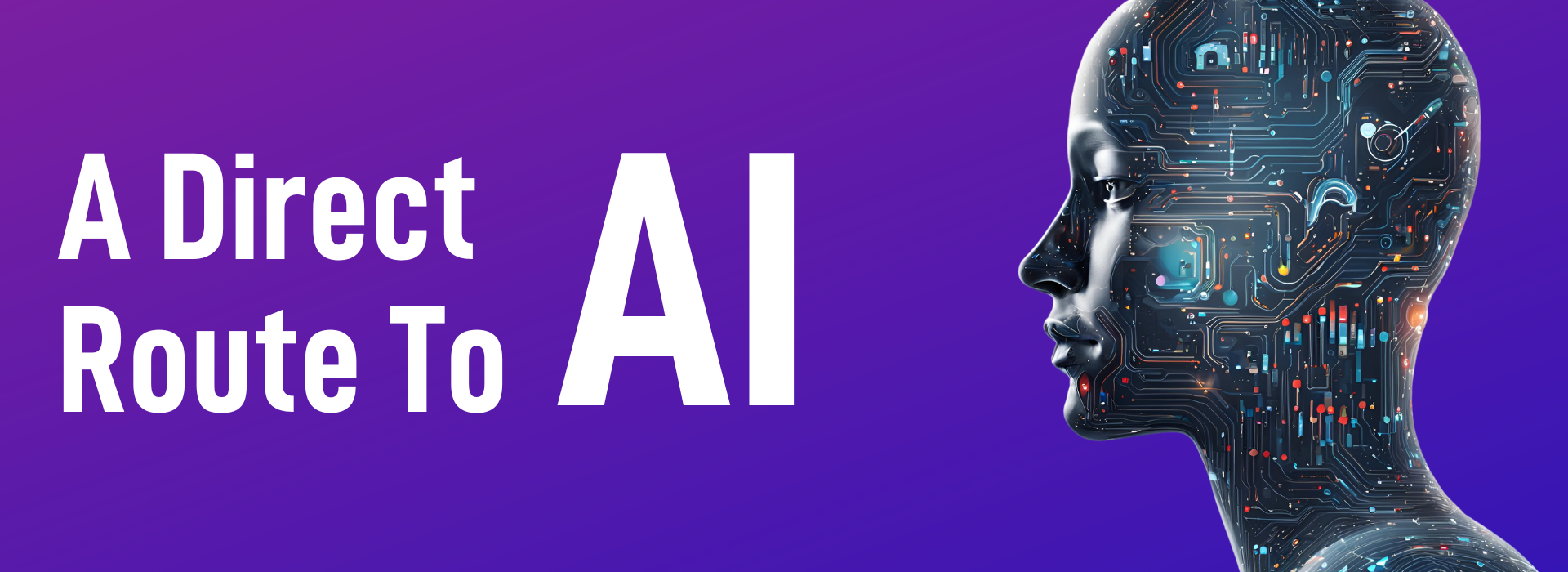In the dynamic landscape of digital marketing, staying ahead of the curve is crucial for businesses aiming to secure a tangible return on investment (ROI). Let’s be honest, if you aren’t staying ahead, then you are as good as falling behind.
As we venture further into 2024, it’s imperative to dissect emerging trends that promise to reshape the digital marketing sphere while providing actionable insights for businesses seeking measurable results. Search is changing, Google is changing – and these changes can very well impact your business, so listen up and take note, because they WILL happen whether you decide to evolve or not.
The Evolution of Digital Marketing: A Reflective Lens
Before delving into the future, let’s reflect on the metamorphosis of digital marketing over the past half-decade. We don’t need to look back any further than the last five years to witness a profound shift in consumer behaviour, catalysed by advancements in technology, changing demographics, and global events like the COVID-19 pandemic.
Here’s a snapshot of the transformative journey:
1. Rise of Omnichannel Marketing: Businesses transitioned from siloed marketing channels to a holistic approach that seamlessly integrates multiple touchpoints. Omnichannel strategies have become imperative for cutting through the noise, delivering consistent and personalised experiences across various platforms, fostering brand loyalty and enhancing ROI. We see in many sectors, offline and online activity needs to be aligned and intertwined, and often, this requires sales and marketing to work closely together – whether they like the idea or not!
2. Data-Driven Decision Making: The proliferation of big data and analytics empowered marketers to extract actionable insights from vast volumes of information. Leveraging sophisticated tools, businesses gained a deeper understanding of consumer preferences, enabling targeted campaigns and enhanced ROI.
We of course, advocate for HubSpot! It’s because these platforms offer far greater insights than the standard data studios such as GA4. If you want to get into the nitty gritty of audience behaviour and ROI, you need to invest in the right software. Want to know EXACTLY where your most profitable deals come from? It’s possible to drill right down to the nitty gritty with marketing platforms of today. How much revenue does organic search generate? What about direct? Social?
How are you making decisions without knowing this information?
3. Dominance of Visual Content: You need to hold your audiences’ attention for a minimum of 3 seconds. Is it any wonder that visual content, including videos, infographics, and interactive media, emerged as a cornerstone of digital marketing strategies? With attention spans dwindling and visual platforms like Instagram and TikTok gaining prominence, businesses harnessed the power of compelling visuals to captivate audiences and drive engagement. We are in the age of highly reduced attention spans, meaning you have a VERY small window of time to grab the audience’s attention. Short, sharp social clips, coupled with bookmarked longer videos are the way forward.
Rumour has it that TikTok style videos are about to grace our LinkedIn feeds – and I’m here for it! It forces businesses to think creatively and lean into their audiences on a more personal level to compete for attention.
4. Emergence of AI and Automation: Whether you love it, are wary or just want to steer clear – you can’t deny AI is dominating conversations in businesses and households across the world. Artificial Intelligence (AI) and automation revolutionised marketing operations, streamlining processes, and enabling hyper-personalised communication at scale.
From chatbots delivering customer support to AI-powered content creation, predictive analytics, businesses leveraged these technologies to optimise workflows and enhance ROI. Can AI be relied on fully for all aspects of marketing? Absolutely not. Is it a tool to be used? 100% yes. It takes time to know how to work with these tools to get the most out of them, but they too are worth the investment.
Gov.UK tells us that currently only around 15% of UK businesses have adopted at least one AI technology, for data management and analysis purposes. I understand that, but I also know that the technology offers so much more, you just need to find the right people to guide you.
5. Elevation of User Experience (UX): In an era defined by user-centricity, businesses prioritised enhancing the digital experience to forge meaningful connections with consumers. Intuitive website designs, mobile optimisation, and frictionless checkout processes became non-negotiable elements of digital marketing strategies, directly impacting conversion rates and ROI.
Forget what YOU think looks nice or makes sense, and make every decision from the users’ perspective, and how each conversion can be made quicker and easier. This is both an art and a science and it should be respected! As we navigate the evolving landscape of digital marketing, let’s illuminate the trends poised to shape the trajectory of the rest of 2024 and beyond, empowering businesses to unlock the full potential of their marketing endeavours.
Want to talk about implementing some of these elements?

2024 Digital Marketing Trends: A Direct Route to ROI
Hyper-Personalisation through AI:
In recent years, AI and machine learning have revolutionised the way businesses interact with consumers, paving the way for hyper-personalisation in digital marketing.
According to a study by McKinsey:
- Companies that leverage AI to personalise customer experiences see revenue increase by 6-10%, highlighting the tangible impact of personalised marketing strategies. AI-powered predictive analytics allow businesses to delve deep into consumer data, discerning patterns and preferences that enable highly targeted messaging. For instance, Netflix’s recommendation engine analyses viewing history, genre preferences, and viewing habits to curate personalised content for each user:
- Resulting in a 75% increase in viewer engagement.
Moreover, AI chatbots, such as those used by Starbucks and Sephora, simulate human-like interactions, offering tailored recommendations and assistance based on individual queries and past interactions. This level of personalisation not only enhances customer satisfaction but also drives conversions and boosts ROI.
Business of any size can adopt AI and automation technology, it’s incredibly accessible and can make a huge impact, especially in labour intensive tasks that are a drain on time, energy and efficiency.
Embrace of Immersive Technologies:
Virtual and augmented reality (VR/AR) have transcended novelty status to become powerful tools in the marketer’s arsenal, offering immersive experiences that captivate audiences and drive brand engagement.
According to a report by Statista:
- The global AR and VR market is projected to reach $72.8 billion in 2024, underscoring the immense potential of these technologies in reshaping the digital marketing landscape.
Do you use visuals and drawings in your marketing and sales process? What would happen if you upgraded that process?
Retailers like IKEA have embraced VR by offering virtual showroom experiences, allowing customers to visualise furniture in their own homes before making a purchase. Similarly, cosmetics brands like L’Oréal leverage AR to enable virtual try-on experiences, allowing customers to sample products virtually and make informed purchasing decisions.
Immersive storytelling experiences, such as the New York Times’ VR documentaries, transport audiences to far-flung locales, fostering emotional connections with brands and driving brand affinity. By harnessing the power of immersive technologies, businesses can create memorable experiences that resonate with consumers, ultimately driving ROI through increased brand loyalty and customer satisfaction.
Voice Search Optimisation (VSO):
“Alexa! Hey Siri! OK Google!”
The proliferation of voice-activated devices and virtual assistants has reshaped the way consumers search for information, with voice search poised to dominate the digital landscape in 2024.
According to ComScore:
- 50% of all searches will be voice searches in 2024, underlining the critical importance of Voice Search Optimisation (VSO) for businesses seeking to enhance their digital presence and drive ROI.
It makes sense. Before, these assistants were viewed as a gimmick, there to set timers and tell us what the weather was like that day. Now? Now we trust them, they are built into our domestic infrastructure and day to day lives.
To capitalise on this trend, businesses must optimise their content for natural language queries and conversational search patterns. By incorporating long-tail keywords and localised content, businesses can improve their visibility in voice search results and capture valuable organic traffic.
When it comes to technical SEO – leveraging schema markup and structured data allows businesses to provide contextually relevant information to voice assistants, increasing the likelihood of their content being featured as a voice search result.
By prioritising VSO strategies, businesses can stay ahead of the curve and maximise ROI in an increasingly voice-driven landscape.
Sustainability and Ethical Branding:
We are in an age of heightened environmental consciousness and social responsibility – consumers are increasingly drawn to brands that embody sustainability and ethical values.
According to Nielsen:
- 66% of consumers are willing to pay more for sustainable brands, highlighting the significant ROI potential of sustainability-focused marketing initiatives.
Leading brands like Patagonia and TOMS have built their entire marketing narratives around sustainability and ethical practices, resonating with consumers who prioritise environmental stewardship and social impact. By showcasing eco-friendly initiatives, transparent supply chains, and ethical sourcing practices, businesses can differentiate themselves in the marketplace and forge authentic connections with consumers.
Purpose-driven marketing campaigns, such as Nike’s “Dream Crazy” campaign featuring Colin Kaepernick, resonate with consumers on a deeper level, fostering brand loyalty and driving ROI through increased customer engagement and advocacy.
You don’t have to be in the sustainable or ‘woke’ space to be purposeful. Stand up for what is important for you, develop strong brand values and support causes that are aligned with your business. But whatever you do, avoid greenwashing and simply paying lip service, it can be spotted a mile off and WILL damage your business in the long term.
Augmented Analytics for Actionable Insights:
Augmented analytics, powered by AI and machine learning algorithms, empower marketers to extract actionable insights from vast datasets, enabling data-driven decision-making and maximising ROI. According to Gartner, augmented analytics will be the dominant driver of new purchases of analytics and business intelligence tools in 2024, underscoring its transformative potential in the digital marketing sphere.
By automating data preparation, analysis, and interpretation, augmented analytics platforms, such as Google Analytics and Adobe Analytics, empower marketers to uncover hidden trends, predict consumer behaviour, and identify untapped opportunities. Armed with these insights, businesses can refine their marketing strategies, allocate resources effectively, and optimise campaign performance across channels.
Moreover, augmented analytics enable marketers to measure the impact of their marketing efforts in real-time, allowing for agile adjustments and iterative improvements. By harnessing the power of augmented analytics, businesses can stay ahead of the competition and drive ROI through data-driven innovation and strategic decision-making.
Privacy-First Marketing:
Yes, it’s time to discuss GDPR (sorry!).
With regulatory frameworks like GDPR and CCPA placing greater emphasis on data privacy and consumer consent, businesses must adopt a privacy-first approach to digital marketing to build trust and safeguard brand reputation.
According to Deloitte:
- 90% of consumers believe it’s important for companies to adhere to data privacy regulations, highlighting the critical role of privacy in shaping consumer perceptions and driving brand loyalty.
By prioritising transparency, consent management, and data protection measures, businesses can demonstrate their commitment to respecting consumer privacy rights and earn the trust of their audience. Implementing robust data governance frameworks and compliance protocols ensures that customer data is handled responsibly and ethically, mitigating the risk of regulatory penalties and reputational damage.
Adopting privacy-enhancing technologies, such as differential privacy and federated learning, allows businesses to leverage consumer data for marketing purposes while preserving individual privacy rights. By embracing privacy-first marketing practices, businesses can foster long-term customer relationships built on trust and integrity, ultimately driving ROI through enhanced brand reputation and customer loyalty.
You don’t have to like the legislation, but you do have to adhere to it to continue to make your online presence an un-interrupted success.
Feeling motivated to elevate your marketing?
The digital marketing trends of 2024 are defined by innovation, consumer-centricity, and ethical responsibility.
If you’re not already, consider embracing the trends that are relevant to your business – it might be hyper-personalisation through AI or leveraging immersive technologies, perhaps it’s prioritising Voice Search Optimisation or embodying sustainability and ethical branding, or even harnessing augmented analytics and adopting a privacy-first approach to marketing.
Being able to navigate the evolving landscape of digital marketing with confidence will enable you to drive tangible ROI in an increasingly competitive marketplace.





